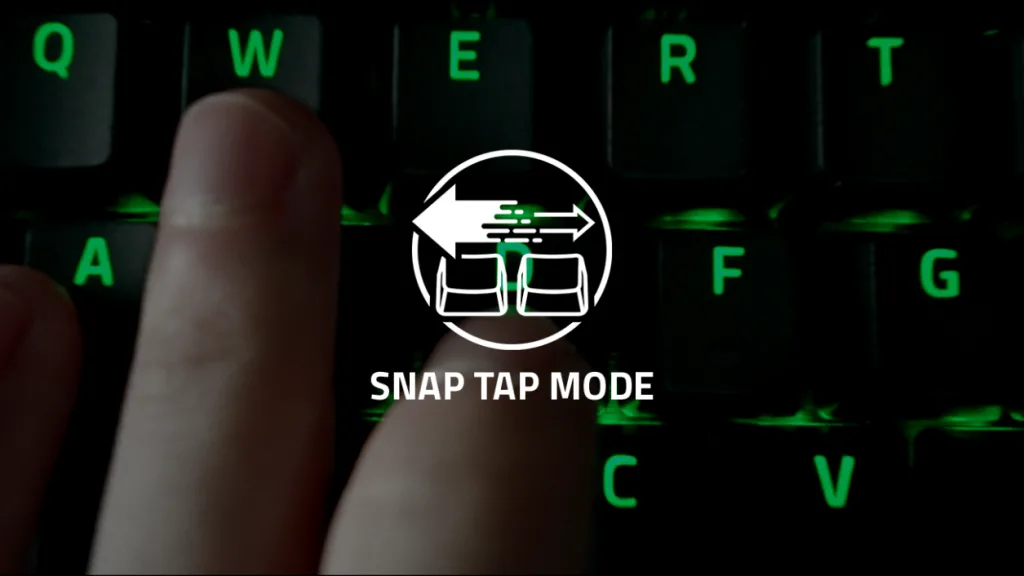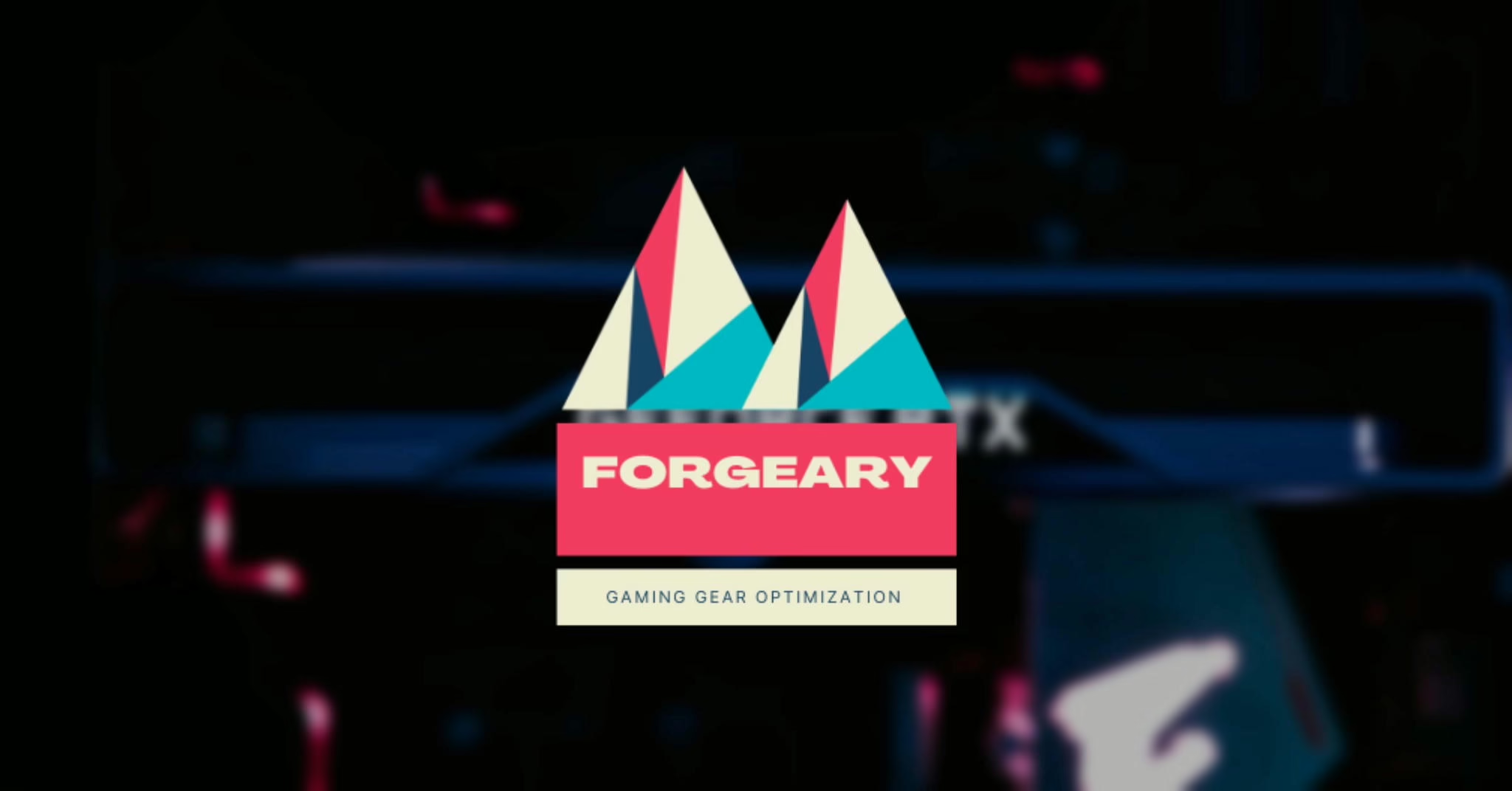In the rapidly evolving landscape of gaming peripherals, Razer's introduction of the Snap Tap feature marks a significant milestone in mechanical gaming keyboard technology. Unveiled in July 2024, Snap Tap is a groundbreaking innovation designed to enhance the responsiveness and precision of gaming inputs, particularly in fast-paced first-person shooter (FPS) games like "Counter-Strike 2" and "Valorant" (Tech4Gamers).
Snap Tap addresses a long-standing issue in gaming keyboards: the delay caused by the need to release one key before pressing another to change directions. This feature prioritizes the most recent input between two selected keys, allowing for instantaneous directional changes without the need to lift the initial key (Razer). This advancement is particularly beneficial for counter-strafing, a critical skill in competitive gaming that requires precise timing and rapid input changes (SlashGear).
The introduction of Snap Tap has sparked a debate within the gaming community regarding its impact on gameplay fairness. While some argue that it provides an unfair advantage by simplifying complex maneuvers, others believe it represents a natural progression in gaming technology that will soon become standard across the industry (ScreenRant). Notably, Razer's competitor, Wooting, has implemented a similar feature, indicating a broader trend towards input prioritization in gaming keyboards (PCGamer).
Despite the controversy, Snap Tap has been validated by professional gamers and is permitted in high-level esports tournaments, underscoring its acceptance and potential to redefine competitive gaming standards (Press Razer). As gaming keyboards continue to evolve, features like Snap Tap are poised to become integral to the gaming experience, offering players enhanced control and responsiveness in their gameplay.

Introduction to snap tap technology
Evolution of gaming keyboards
The gaming keyboard industry has witnessed significant advancements over the years, with manufacturers constantly innovating to enhance user experience and performance. One of the latest breakthroughs in this domain is the introduction of Snap Tap technology by Razer.
This feature is designed to improve the responsiveness and fluidity of gaming keyboards, particularly in fast-paced gaming environments. Snap Tap technology is a testament to the ongoing evolution of gaming peripherals, aiming to provide gamers with a competitive edge by optimizing input methods.
Technical overview of snap tap
Snap Tap technology is a feature that prioritizes the latest input between two selected keys without requiring the release of the previous key. This is particularly beneficial in first-person shooter (FPS) games, where quick directional changes are crucial.
The technology is integrated into the firmware of Razer's Huntsman V3 Pro line, allowing for instantaneous directional changes without the need to lift the initial key. This seamless transition is critical in competitive gaming, where even milliseconds can impact gameplay outcomes (Razer Press Release).
Comparison with traditional keyboards
Traditional mechanical keyboards typically have a 2mm actuation point, which can introduce delays between key presses and the corresponding actions in-game. This delay can be detrimental in competitive scenarios where speed and precision are paramount. Snap Tap addresses this issue by eliminating the need to physically lift fingers between key presses, thus reducing latency and enhancing the overall gaming experience (Tech4Gamers).
Impact on competitive gaming
Snap Tap technology has been embraced by professional gamers and esports athletes due to its ability to enhance gameplay performance. The feature allows for faster counter-strafing, a technique used to quickly change directions and avoid enemy fire in FPS games. By enabling near-instant directional changes, Snap Tap provides players with a significant advantage, allowing them to react more swiftly to in-game situations. This has been particularly beneficial in games like Counter-Strike 2 and Valorant, where precision and speed are critical (Esports.gg).
Adoption and compatibility
Razer's Snap Tap technology is available as a free update for the Huntsman V3 Pro lineup, including full-size, tenkeyless, and 60% models. To access this feature, users need to ensure both their keyboard firmware and Razer Synapse software are up to date. The phased rollout ensures a smooth transition and optimal performance for all users. Additionally, other manufacturers, such as Wooting and Drunkdeer, have started implementing similar features in their keyboards, indicating a growing trend in the industry (Medium).
Controversies and challenges
The introduction of Snap Tap technology has sparked debates within the gaming community regarding its impact on fair play. Some argue that the feature provides an unfair advantage, akin to cheating, as it alters the natural input behavior expected in games.
However, Razer has worked closely with esports organizations to ensure that Snap Tap is allowed in competitive settings, such as ESL tournaments. Despite this, certain game developers, like Valve, have restricted the use of keyboards with input-automation features on official servers, highlighting the ongoing challenges in balancing innovation with fair competition (ProSettings).
Future prospects
As the gaming industry continues to evolve, features like Snap Tap are likely to become more prevalent. The demand for faster, more responsive input methods will drive further innovation in gaming peripherals. Manufacturers will need to balance the benefits of such technologies with the need to maintain fair competition in esports. The success of Snap Tap may pave the way for new advancements in keyboard technology, ultimately enhancing the gaming experience for players worldwide (TechWalls).
In conclusion, Snap Tap technology represents a significant advancement in gaming keyboard design, offering enhanced responsiveness and fluidity for competitive gamers. Its adoption by leading manufacturers and acceptance in professional gaming circles underscore its potential to revolutionize the gaming experience. However, the ongoing debates around its impact on fair play highlight the need for careful consideration of such innovations in the context of competitive gaming.
Impact of snap tap on gaming performance
Enhanced responsiveness and precision
Snap Tap technology significantly enhances the responsiveness and precision of gaming keyboards, particularly in fast-paced first-person shooter (FPS) games. By allowing players to prioritize the latest input between two keys without releasing the previous key, Snap Tap enables near-instantaneous directional changes.
This feature is crucial in competitive gaming, where milliseconds can determine the outcome of a match. The ability to execute rapid counter-strafing maneuvers without delay provides players with a tactical advantage, allowing them to evade enemy fire and improve their accuracy (TechWalls).
Competitive edge in esports
In the realm of esports, where precision and speed are paramount, Snap Tap technology offers a competitive edge. Professional gamers have reported noticeable improvements in their gameplay, particularly in games like Counter-Strike 2 and Valorant, where quick directional changes are essential. The integration of Snap Tap with Razer's Rapid Trigger technology further amplifies this advantage by allowing players to cancel inputs immediately upon key release, facilitating faster reaction times and more fluid gameplay (CravingTech).
Impact on player skill development
While Snap Tap technology enhances performance, it also raises questions about its impact on player skill development. Traditional gaming skills, such as precise timing and manual dexterity, may become less critical as technology compensates for human limitations. This shift could lead to a reevaluation of what constitutes skill in competitive gaming. However, it also democratizes access to high-level play, allowing more players to compete at a higher level without the need for extensive practice to master complex maneuvers (Tech4Gamers).
Industry adaptation and standardization
The introduction of Snap Tap technology has prompted other manufacturers to develop similar features, leading to a broader industry adaptation. Companies like Wooting have introduced their own versions of Simultaneous Opposing Cardinal Directions (SOCD) technology, which mirrors the functionality of Snap Tap. This trend suggests a potential shift towards standardization of such features in gaming keyboards, as manufacturers strive to meet the demands of competitive gamers seeking the latest technological advantages (Gamerant).
Ethical considerations and fair play
The integration of Snap Tap technology into competitive gaming raises ethical considerations regarding fair play. While the feature is currently allowed in professional tournaments, its impact on the balance of competition is a topic of debate. Some argue that it provides an unfair advantage, akin to a cheat code, by altering the natural input behavior expected in games. This has led to discussions about whether such features should be regulated or banned to maintain a level playing field in esports (ScreenRant).
Influence on game design and development
The advent of Snap Tap technology may influence game design and development, as developers consider how to accommodate or counteract the advantages it provides. Game mechanics may need to be adjusted to ensure that players using traditional input methods are not at a disadvantage. Alternatively, developers might integrate similar features directly into their games, creating a new standard for input responsiveness and precision. This could lead to a reevaluation of game balance and mechanics, as well as the potential for new gameplay strategies (Press Razer).
Broader implications for gaming hardware
Beyond its immediate impact on gaming performance, Snap Tap technology represents a broader trend in gaming hardware towards increased customization and optimization. As players seek to gain every possible advantage, manufacturers are likely to continue developing innovative features that enhance the gaming experience. This trend could lead to further advancements in keyboard technology, such as adjustable actuation points and customizable input profiles, allowing players to tailor their equipment to their specific needs and preferences (Gamerant).
Potential for widespread adoption
The potential for widespread adoption of Snap Tap technology is significant, as more players and manufacturers recognize its benefits. As the technology becomes more accessible and affordable, it is likely to become a standard feature in gaming keyboards, much like mechanical switches and RGB lighting. This could lead to a new era of gaming peripherals, where advanced input technologies are the norm rather than the exception, further blurring the lines between hardware and software in gaming (TechWalls).
Challenges in balancing innovation and fairness
The challenge of balancing innovation with fairness in competitive gaming is an ongoing issue. As new technologies like Snap Tap emerge, stakeholders in the gaming industry, including developers, tournament organizers, and players, must work together to establish guidelines and regulations that ensure fair competition. This may involve setting standards for acceptable input technologies, developing new rules for competitive play, or creating separate divisions for players using different types of equipment (Gamerant).
Future directions for gaming keyboards
Looking ahead, the future of gaming keyboards is likely to be shaped by the continued evolution of input technologies like Snap Tap. As manufacturers explore new ways to enhance responsiveness and precision, players can expect to see even more advanced features that push the boundaries of what is possible in gaming. This could include innovations such as haptic feedback, adaptive key mapping, and integration with virtual reality systems, all aimed at providing a more immersive and competitive gaming experience (Tech4Gamers).
Ethical implications of snap tap technology
The introduction of Snap Tap technology in gaming keyboards has sparked significant ethical debates within the gaming community. This section delves into the ethical implications of this technology, focusing on its impact on competitive fairness, the potential for creating a pay-to-win environment, and the broader consequences for the gaming industry.
Fairness in competitive gaming
Snap Tap technology has been criticized for potentially disrupting the balance of competitive gaming. By allowing instantaneous directional changes, it provides users with a significant advantage over those using traditional keyboards. This advantage raises questions about the fairness of competitions where not all players have access to such technology. The ethical dilemma centers on whether it is justifiable to allow a hardware feature that can significantly alter gameplay dynamics (TechSpot).
Pay-to-win concerns
The concept of pay-to-win, where players can gain advantages through financial investment rather than skill, is a contentious issue in gaming. Snap Tap technology, by offering a tangible performance boost, could be seen as contributing to a pay-to-win environment. This raises ethical concerns about accessibility and equity, as not all players can afford high-end gaming peripherals. The potential for creating a divide between those who can afford such technology and those who cannot is a significant ethical consideration (SlashGear).
Impact on skill development
While previous sections have discussed the impact of Snap Tap on player skill development, this section focuses on the ethical implications of this impact. The technology may diminish the value of traditional gaming skills, such as precise timing and manual dexterity, which are typically honed through extensive practice. This shift could lead to a reevaluation of what constitutes skill in competitive gaming, potentially devaluing the efforts of players who have invested time in developing these skills (Tech4Gamers).
Regulatory challenges
The introduction of Snap Tap technology presents regulatory challenges for game developers and tournament organizers. Determining whether such features should be allowed in competitive settings is a complex issue. Some organizations, like Valve, have already taken steps to ban keyboards with input-automation features on official servers, highlighting the need for clear guidelines and regulations. The ethical challenge lies in balancing innovation with the need to maintain a level playing field (PCGuide).
Broader industry implications
The broader implications of Snap Tap technology extend beyond individual games and competitions. As more manufacturers adopt similar features, the gaming industry may face pressure to standardize such technologies. This could lead to a shift in how games are designed and played, with developers potentially needing to accommodate or counteract the advantages provided by these technologies. The ethical question is whether the industry should embrace these changes or resist them to preserve traditional gaming values (The Verge).
Community reactions and perceptions
The gaming community's reaction to Snap Tap technology has been mixed, with opinions divided on its ethical implications. This section explores the various perspectives within the community, including those of professional players, casual gamers, and industry stakeholders.
Professional players' perspectives
Professional players have been vocal about their concerns regarding Snap Tap technology. Some argue that it undermines the skill-based nature of competitive gaming by removing the human element from gameplay. The ability to execute flawless counter-strafing maneuvers without the need for precise timing is seen by some as diminishing the value of practice and experience. This perspective highlights the ethical tension between technological advancement and the preservation of skill-based competition (DoteSports).
Casual gamers' views
Casual gamers, on the other hand, may view Snap Tap technology as a way to level the playing field. By reducing the skill gap between experienced and novice players, the technology could democratize access to high-level play. However, this perspective is not without its ethical concerns, as it raises questions about the value of skill and effort in gaming. The potential for Snap Tap to make traditional skills obsolete is a point of contention among casual gamers (Gamerant).
Industry stakeholders' opinions
Industry stakeholders, including game developers and peripheral manufacturers, have a vested interest in the adoption of Snap Tap technology. For manufacturers, the technology represents an opportunity to differentiate their products and capture market share. However, developers face the challenge of ensuring that their games remain balanced and fair in the face of new technologies. The ethical responsibility of these stakeholders is to consider the long-term impact of Snap Tap on the gaming ecosystem and to act in the best interests of the community (TechBriefly).
Future considerations and ethical guidelines
As Snap Tap technology becomes more prevalent, the gaming industry must consider the ethical implications of its widespread adoption. This section outlines potential future considerations and ethical guidelines for the integration of such technologies.
Establishing ethical standards
The establishment of ethical standards for gaming technologies like Snap Tap is crucial to ensuring fair competition. These standards could include guidelines for the use of input-automation features in competitive settings, as well as recommendations for manufacturers on how to implement such technologies responsibly. The development of these standards will require collaboration between industry stakeholders, including developers, manufacturers, and tournament organizers (ProSettings).
Encouraging responsible innovation
Encouraging responsible innovation is another key consideration for the gaming industry. Manufacturers should be mindful of the potential ethical implications of their technologies and strive to create products that enhance the gaming experience without compromising fairness. This may involve conducting thorough testing and seeking feedback from the gaming community before releasing new features. By prioritizing ethical considerations, manufacturers can help ensure that technological advancements benefit all players (Press Razer).
Adapting game design
Game developers may need to adapt their designs to accommodate the advantages provided by Snap Tap technology. This could involve adjusting game mechanics to ensure that players using traditional input methods are not at a disadvantage. Alternatively, developers might integrate similar features directly into their games, creating a new standard for input responsiveness and precision. The ethical challenge is to balance innovation with the need to maintain a fair and enjoyable gaming experience for all players (Tech4Gamers).
Promoting inclusivity and accessibility
Finally, promoting inclusivity and accessibility is an important ethical consideration for the gaming industry. As technologies like Snap Tap become more common, it is essential to ensure that all players have access to the benefits they provide. This may involve making such technologies more affordable and widely available, as well as providing support for players who may be disadvantaged by their introduction. By prioritizing inclusivity, the industry can help ensure that gaming remains a diverse and welcoming space for all players (TechSpot).
Conclusion
The advent of Snap Tap technology in gaming keyboards significantly enhances input responsiveness and precision, promising a better gaming experience. However, it has sparked ethical debates about competitive fairness, potential pay-to-win scenarios, and impacts on skill development and industry standards.
Snap Tap technology offers a performance boost that could disrupt competitive gaming balance and challenge traditional skill notions, possibly devaluing players' efforts. Regulatory challenges arise as developers and organizers need clear guidelines for such technologies, suggesting a shift in game design and standardization.
As Snap Tap technology spreads, the gaming industry must establish ethical standards and promote responsible innovation. This includes adapting game design for fairness, inclusivity, and collaboration among stakeholders to develop guidelines.
The challenge is balancing innovation with maintaining a fair and enjoyable gaming experience. Addressing these ethical considerations helps the industry navigate technological advancements while preserving competitive integrity and inclusivity.

